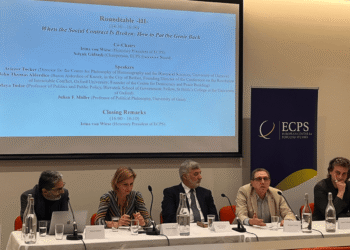Dr. Tatsiana Kulakevich underscores the resilience of the Belarusian protest movement amidst systematic repression and violence. Despite recent parliamentary elections failing to incite significant dissent, she suggests that future electoral events, especially presidential elections, could ignite substantial change. Despite the challenges ahead, the Belarusian people remain hopeful for a window of opportunity to usher in a new regime and reclaim their rights and freedoms. Kulakevich also draws attention to the plight of political prisoners in Belarus, whose uncertain fate mirrors Navalny’s tragic end.
Interview by Selcuk Gultasli
In the wake of the collapse of the Soviet Union, numerous post-Soviet countries have struggled to establish and consolidate liberal democracy, the rule of law, and fundamental rights and freedoms. After two and a half decades, a concerning trend toward populism, authoritarianism, and autocracy has emerged among several of these nations, with some, such as Belarus, never having experienced a functioning democracy. Giving an exclusive interview to European Center for Populism Studies, Dr. Tatsiana Kulakevich, an Associate Professor at the University of South Florida’s School of Interdisciplinary Global Studies and a research fellow and affiliated faculty at the USF Institute for Russian, European and Eurasian Studies, sheds light on the underlying causes of these failures and their implications for Belarus.
Kulakevich begins by addressing the collapse of the Soviet Union and the subsequent expectations of reform and democratization among former Soviet Republics. However, disillusionment soon followed as many countries experienced kleptocracy and oligarchic rule. The global financial crisis of 2008 further eroded confidence in liberal democracy, leading to the rise of populist leaders who capitalized on public discontent.
Belarus, under the authoritarian rule of Alexander Lukashenko, stands out amidst this backdrop. Kulakevich emphasizes the regime’s shift towards "Sultanism," characterized by the consolidation of power in the hands of one man. However, to her, unlike traditional totalitarian regimes, Belarus lacks a unifying ideology, instead revolving around the arbitrary exercise of power.
Dr. Kulakevich underscores the resilience of the Belarusian protest movement amidst systematic repression and violence. Although recent parliamentary elections on February 25 did not evoke significant dissent, she notes that future electoral events, particularly presidential elections, could catalyze meaningful change. Despite the formidable challenges ahead, Dr. Kulakevich emphasizes that the Belarusian people remain hopeful for a window of opportunity to usher in a new regime and reclaim their rights and freedoms.
Dr. Kulakevich said the murder of Alexei Navalny, a prominent Russian opposition figure, casts a grim shadow over Belarusian dissidents. Kulakevich highlights the plight of political prisoners in Belarus, whose uncertain fate echoes Navalny’s tragic end. The regime’s ruthless tactics, exemplified by Navalny’s assassination attempt, resonate with Belarusian dissidents, who face similar threats to their lives and freedoms.
Here is the transcription of the interview with Dr. Tatsiana Kulakevich with some edits.
Disappointments in Anticipated Changes Led to Rise of Populism in Eastern Europe
After nearly three and a half decades since the collapse of the Soviet Union, numerous post-Soviet countries continue to struggle with consolidating liberal democracy, the rule of law, and fundamental rights and freedoms. Many of these nations have experienced a recent trend toward populism, authoritarianism, and autocracy. What are the underlying and shared causes of these failures?
Tatsiana Kulakevich: I would start with the collapse of the Soviet Union and the definition of Eastern Europe. Some countries experiencing a shift towards right-wing politics, such as Poland and Hungary, are often categorized as Eastern Europe by the United Nations, although some prefer to be called Central Europe. These countries, numbering around 10, are situated close to the former Soviet Union, with some being members of the European Union and others not.
Following the collapse of the Soviet Union in the 1990s, people in the former Soviet Republics had high expectations. However, many experienced kleptocracy and oligarchic rule, including Russia, Moldova, and Ukraine, as well as certain European Union countries that were not yet members at that time. Upon joining the European Union in the 2000s, there was an expectation of economic reform and a reduction in kleptocracy. However, the reality fell short of expectations, and kleptocracy persisted, leading to a second disappointment.
Furthermore, the global financial crisis of 2008 further eroded confidence in liberal democracy, prompting some to seek alternative solutions. This disillusionment paved the way for populist leaders who offered different promises, resonating with the discontented populace. Ultimately, historical disappointments in anticipated changes have gradually led to the rise of populist politics in these regions.
After the Protests of 2020, Belarus Shifted towards Sultanism
We are witnessing a resurgence of populism in Eastern Europe, particularly in Poland, Hungary, Slovakia, and the Czech Republic, while Belarus solidifies its authoritarian rule under a one-man regime. What are the fundamental differences between the experiences of Eastern European countries and Belarus in terms of populism, and are there any notable similarities? How has the war in Ukraine impacted the consolidation of the authoritarian regime in Belarus?
Tatsiana Kulakevich: Here, it’s important to make a clear distinction between European Union members and post-Soviet Republics that are not part of the EU. While European Union countries may be experiencing a decline in certain values, they still maintain democratic structures. It’s crucial to recognize that democracy is not a one-size-fits-all concept; there are varying degrees of democracy among nations, as indicated by different democracy rankings.
European Union countries, despite any decline, continue to uphold democratic principles. On the other hand, countries like Belarus, and Moldova and Ukraine, which aspire to EU membership, are on a different trajectory. While they may be EU candidates, they are not yet EU members and thus have different processes and challenges to contend with.
When discussing Belarus, it’s evident that the country is under an authoritarian regime, which has only strengthened following the crackdown on the 2020 protests, the largest in Belarusian history. Presently, Belarus seems to be veering towards a form of Sultanism, characterized by the consolidation of power in the hands of one individual. Some may refer to the Belarusian regime as "new totalitarian," but I hesitate to categorize it as such. Unlike traditional totalitarian regimes, Belarus lacks a unifying ideology and widespread mobilization of the populace. Instead, politics in Belarus revolve around a single individual, akin to a Sultan. Such a system doesn’t necessarily rely on a coherent ideology but rather on arbitrary exercises of power. Therefore, while Belarus can be classified as an authoritarian regime, labeling it as totalitarian may not capture all its nuances.
In Belarus, the shift towards Sultanism began to manifest after the protests of 2020, when Lukashenko’s previous balancing act became untenable due to opposition pressure and the closing of doors to the European Union. With limited options and a desire to cling to power, Lukashenko aligned himself more closely with his ally Vladimir Putin. It became apparent that Lukashenko had little choice but to acquiesce to Putin’s demands, allowing Russian military presence and missile launches from Belarusian territory. The crackdown initiated in 2020 has persisted and intensified, rather than commencing in 2022.
Given the erosion of the so-called pillars of Lukashenko’s populism—his alleged proximity to the people, his self-portrayal as a guarantor of peace, and promise of economic and political stability—what internal and external factors contributed to this erosion?
Tatsiana Kulakevich: The erosion of Lukashenko’s populist regime accelerated after 2020, particularly undermining his image as a guarantor of stability. The imposition of numerous sanctions post-2020, exacerbated by Belarus’s involvement in the war, further destabilized the economy and shattered the illusion of economic stability. The brutal suppression of the 2020 protests, documented by the United Nations with reports of violence including rape with batons and deaths, tarnished Lukashenko’s perceived proximity to the people, eroding trust and fueling disappointment. With nearly 1500 political prisoners, the regime’s repression has intensified. Moreover, Lukashenko’s claim as a guarantor of peace disintegrated following Belarus’s complicity in allowing Russian missile launches from its territory during the full-scale invasion of Ukraine, rendering the country a co-aggressor in the war.
Pervasive Atmosphere of Fear Prevents Meaningful Dissent
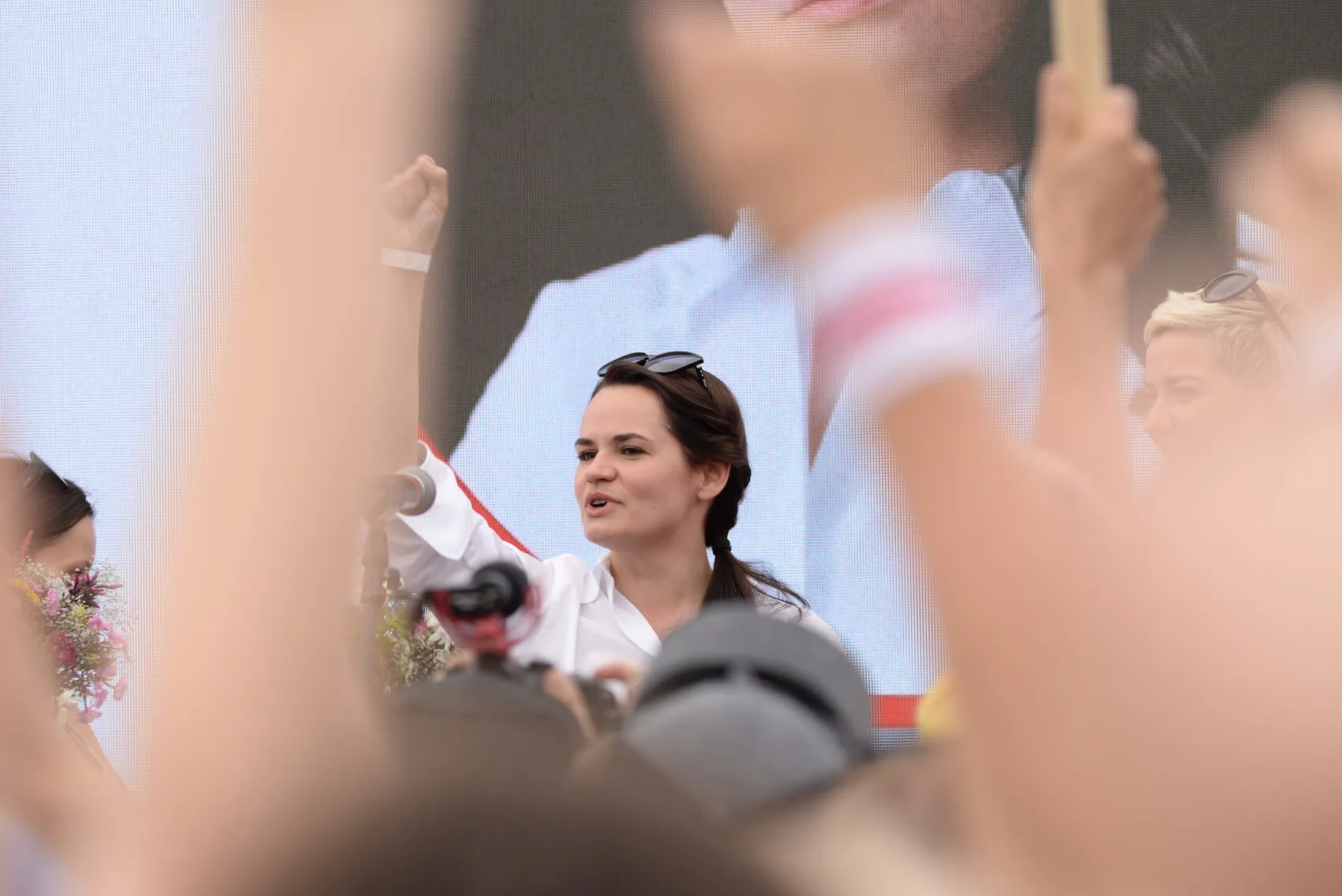
In your presentation at an ECPS panel last year, you noted Lukashenko’s success in creating an image of the political elite as working for the people. How has this perception evolved among Belarusian citizens, particularly in light of the COVID-19 pandemic and the war in Ukraine, which brought about economic and security challenges?
Tatsiana Kulakevich: People witnessed the true nature of the Lukashenko regime and became disillusioned, realizing they had been misled on multiple fronts. For instance, during the 2020 presidential election, people wore white bracelets as a symbol of support for the opposition candidate, Svyatlana Tsihanouskaya. They observed each other at polling stations, noting the widespread presence of these bracelets. When Lukashenko claimed an implausible 80% victory while allocating only 10% to Tsihanouskaya, it was a blatant manipulation that many found incredulous. Reflecting on this, one might speculate that if Lukashenko had claimed a more plausible 60%, the situation might have unfolded differently, but this is not to defend the regime; rather, it’s a facetious assessment.
This pivotal moment exposed the regime’s deceit, galvanizing people to protest even before the brutal crackdown ensued. They rallied around symbols like the historic opposition colors of white, red, and white, distinct from the regime’s associations with bloodshed and the official red and green flag. This newfound solidarity formed the basis of a new imagined community, which resonated deeply with those seeking change.
Once people have witnessed such truths, they cannot simply forget or unsee them. Since the regime’s efforts to suppress dissent and stifle civil society, individuals who oppose the regime within Belarus live in constant fear. The regime’s reach extends to monitoring social media activity and intercepting individuals at the border. This pervasive atmosphere of fear and intimidation prevents meaningful dissent, as people are acutely aware of the potential consequences of speaking out.
Lukashenko’s Regime Does Not Fully Exercise Sovereignty
You argue that Russia unofficially controls Belarus, which has significantly influenced Lukashenko’s alignment with Putin’s interests. Could you elaborate on how this control manifests in Belarusian governance and decision-making processes, particularly in matters concerning pro-Putin foreign policy and military cooperation with Russia?
Tatsiana Kulakevich: In this context, it’s crucial to recall the concept of sovereignty as defined in political science: the monopoly of violence within specific borders. Lukashenko’s regime does not fully exercise sovereignty throughout Belarus, lacking complete control over the use of force within its borders. When we refer to violence here, we’re not discussing crime, but rather the authority of police and military to maintain order and security within a territory.
If you look at Ukraine, Ukraine doesn’t have complete sovereignty because the Russian forces are on Ukrainian territory. Similar situation is happening in Belarus but in a different aspect. While the Ukrainians are paying for their sovereignty with blood, Belarusian sovereignty has been challenged peacefully by moving Russian forces on the Belarussian territory. The trainings are happening, and I hear that Russian military officers have been in control of some army units.
Another aspect of this challenge to sovereignty is the presence of tactical nuclear weapons on Belarusian soil, which are under Russian control. While these weapons are not owned by Belarus, their presence directly challenges Belarus’ monopoly of violence within its borders. This gradual erosion of sovereignty occurs quietly but significantly, posing a threat to the Belarusian people who are not aligned with the regime.
Hence, it’s crucial to recognize that Belarus, too, faces a threat, as its people are not necessarily aligned with the Belarusian regime. While the conflict unfolds on Ukrainian soil, Belarus finds itself under a similar, albeit quieter, threat of gradual erosion of its sovereignty.
In your article "Anti-authoritarian learning: Prospects for democratization in Belarus based on a study of Polish Solidarity," you explore the anti-Lukashenko protest movement in Belarus through a comparative lens with the Solidarity movement in Poland. Why do you believe the anti-Lukashenko democracy movement has not achieved success comparable to the Solidarity movement in Poland? What are the primary differences and similarities between the two movements?
Tatsiana Kulakevich: In this article, we discussed the four stages that social movements undergo to succeed or falter. In Belarus, however, the movement did not achieve the bureaucratization phase, which is crucial for its progression. The movement must initiate with people seeing each other, symbolizing its inception. Subsequently, as people continue to unite, the movement begins to bureaucratize, ultimately culminating in either success or failure.
In Belarus, we witnessed the initial two stages unfold. A significant number of people, approximately half a million, gathered to protest during weekends, demonstrating a collective realization that they are not alone in their desire for change. However, the third stage, bureaucratization, which entails the emergence of leadership, faced challenges. Bureaucratization primarily occurred outside the country’s borders, presenting difficulties as it was forced into exile.
Comparatively, in Poland, bureaucratization occurred internally, albeit amidst regime suppression, signifying a contrasting dynamic. Although the process of bureaucratization did occur in Belarus, its efficacy was hindered by external factors, resulting in minimal progress. It’s essential to acknowledge that successful movements, such as Polish Solidarity, often require significant time to achieve their goals. The Polish example illustrates that it took eight years and persisted until the collapse of the Soviet Union for success to be realized.
Despite the challenges, there is hope that a similar solidarity movement is brewing in Belarus, albeit underground. Viewing these processes positively is crucial, recognizing the existence of the movement and its leadership. The Belarusian people and opposition await a potential window of opportunity, which, if seized, could usher in a new regime.
The Upcoming Presidential Elections Could Serve as Catalysts for Opposition
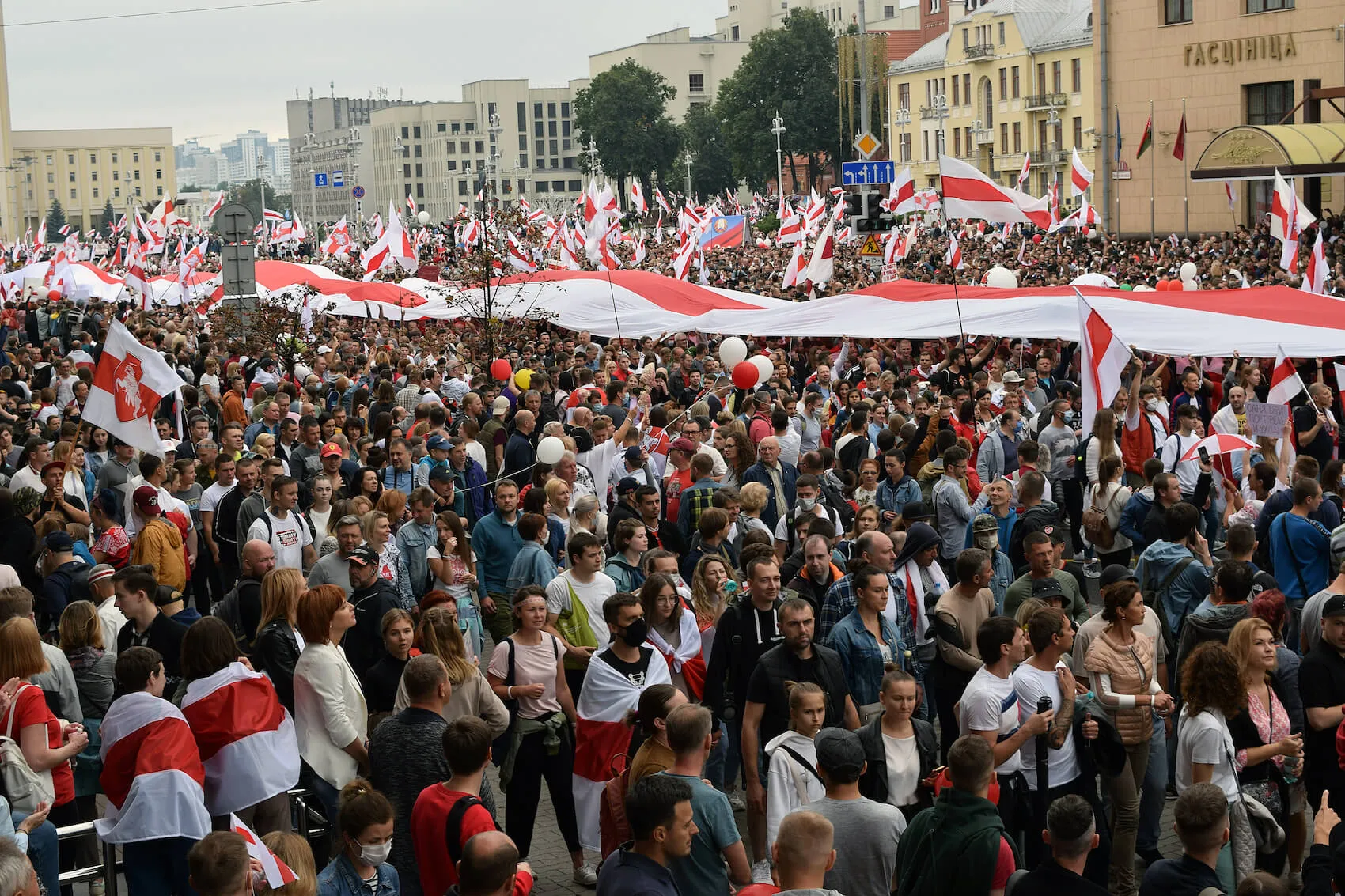
In the same article, you assert that "the 2020 presidential election generated the largest protests in the history of independent Belarus. Masses of Belarusian citizens took to the streets to protest what they considered to be a corrupt and fraudulent election." However, in the recent elections on February 25, characterized by the Council of Europe as a "travesty of democracy," there were not many public demonstrations. Why do you think Belarusians did not mobilize to protest the fraudulent elections this time around? Has the demand for change in Belarus been killed by systematic repression and violence? Or how do you assess the state of resilience and determination of the protest movement in the face of such adversity?
Tatsiana Kulakevich: It’s important to differentiate between the parliamentary and presidential elections in Belarus. Parliamentary elections typically don’t elicit significant public outcry or protest; historically, the turnout for dissent is minimal, often involving only a handful of individuals or none at all. This lack of mobilization is unsurprising given that parliamentary candidates are often regime-appointed, with little chance of electoral success for opposition candidates. People in Belarus have lost faith in the prospect of meaningful change through these elections due to pervasive fear and skepticism. The fear of imprisonment or reprisal discourages many from participating in dissent, especially when they perceive the current electoral cycle as lacking in critical opportunities for change. The next presidential election is likely to be the focal point for more substantial protest, especially considering President Lukashenko’s indication of running again. Therefore, while the recent parliamentary elections may not have spurred significant protest, future electoral events could serve as catalysts for more meaningful dissent.
What is the significance of parliamentary and local elections held on Feb. 25 in Belarus? What do the elections tell us about the nature of the regime in the country?
Tatsiana Kulakevich: Historically, these elections have failed to provoke dissent or resentment among the populace because people perceive little opportunity for meaningful change. The prevailing fear within the country suppresses protest during parliamentary elections, underscoring the belief that President Lukashenko remains firmly entrenched in power and is willing to crack down on any signs of dissent.
Opposition Closed the Door on Lukashenko’s Balancing Act
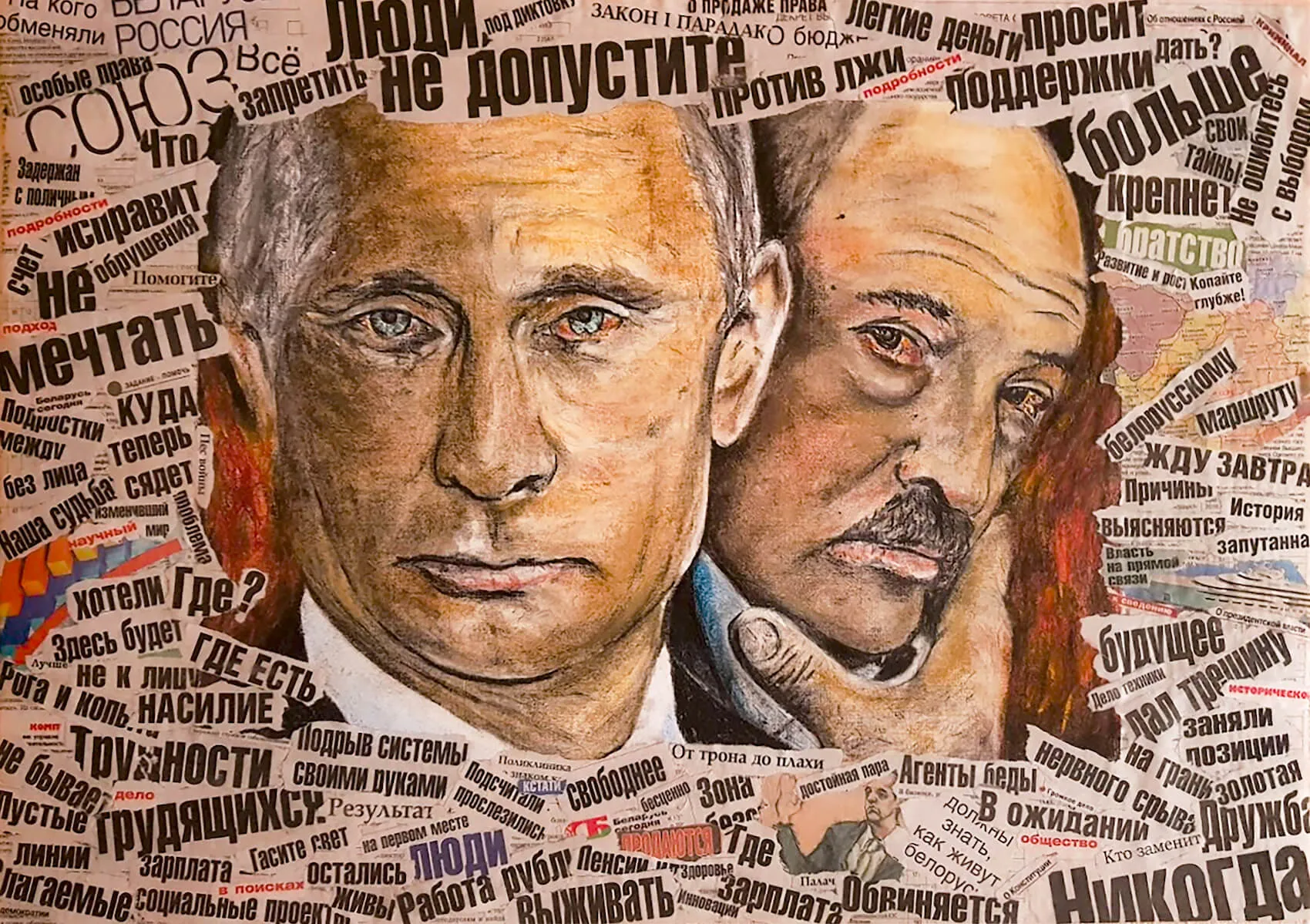
What role does Putin’s Russia play in the consolidation of Lukashenko’s regime and the suppression of popular dissent? How has this suppression in Belarus affected the support for Russia’s actions in Ukraine?
Tatsiana Kulakevich: Let’s delve into the events of 2020, when Lukashenko’s regime was known for its balancing act. This approach involved seeking financial support from either Russia or the European Union depending on the circumstances. For instance, if Putin withheld funds or made unfavorable demands, Lukashenko would turn to the European Union, often promising to release political prisoners in exchange for financial assistance. They were deeply entrenched in their relationships, and this strategy proved effective for decades.
However, everything changed after 2020 when Svetlana Tsikhanouskaya emerged and sought refuge in the European Union, specifically Lithuania. Tsikhanouskaya’s lobbying efforts with leaders in the European Union and the United States effectively closed the door on Lukashenko’s previous balancing act. Consequently, Lukashenko found himself heavily reliant on Putin’s support. Let’s turn our attention to Russia and the onset of the protests.
In 2020, we witnessed a two-week period of inaction by the Lukashenko regime. During this time, there was a noticeable absence of activity, with people peacefully protesting. Despite the confusion apparent within Lukashenko’s regime, he remained passive, even seen riding with a rifle but making no significant moves. Then, suddenly, there was a sharp escalation, depicted graphically as a sudden crackdown. The question arises: why?
The answer lies in Lukashenko’s newfound confidence, gained through promises of financial and political support from Putin. This support emboldened him to quash the protests decisively. It’s as if Putin whispered, "Enough is enough, Alexander," signaling the end of the two-week grace period. From then on, Lukashenko relied heavily on Putin to maintain his grip on power, trading sovereignty for political survival. Putin, in turn, kept Lukashenko in his pocket, utilizing Belarus for strategic purposes such as missile launches and nuclear deployments.
While Putin holds considerable sway, Lukashenko maintains a semblance of autonomy, albeit within the confines of Putin’s influence. He navigates a delicate balance, ensuring his own rule while serving Putin’s interests in Belarus. Thus, while Putin remains in power, Lukashenko recognizes the necessity of compliance while preserving his own domain, however limited it may be.
Lukashenko Continues to Suppress Dissent Thanks to Russia’s Support
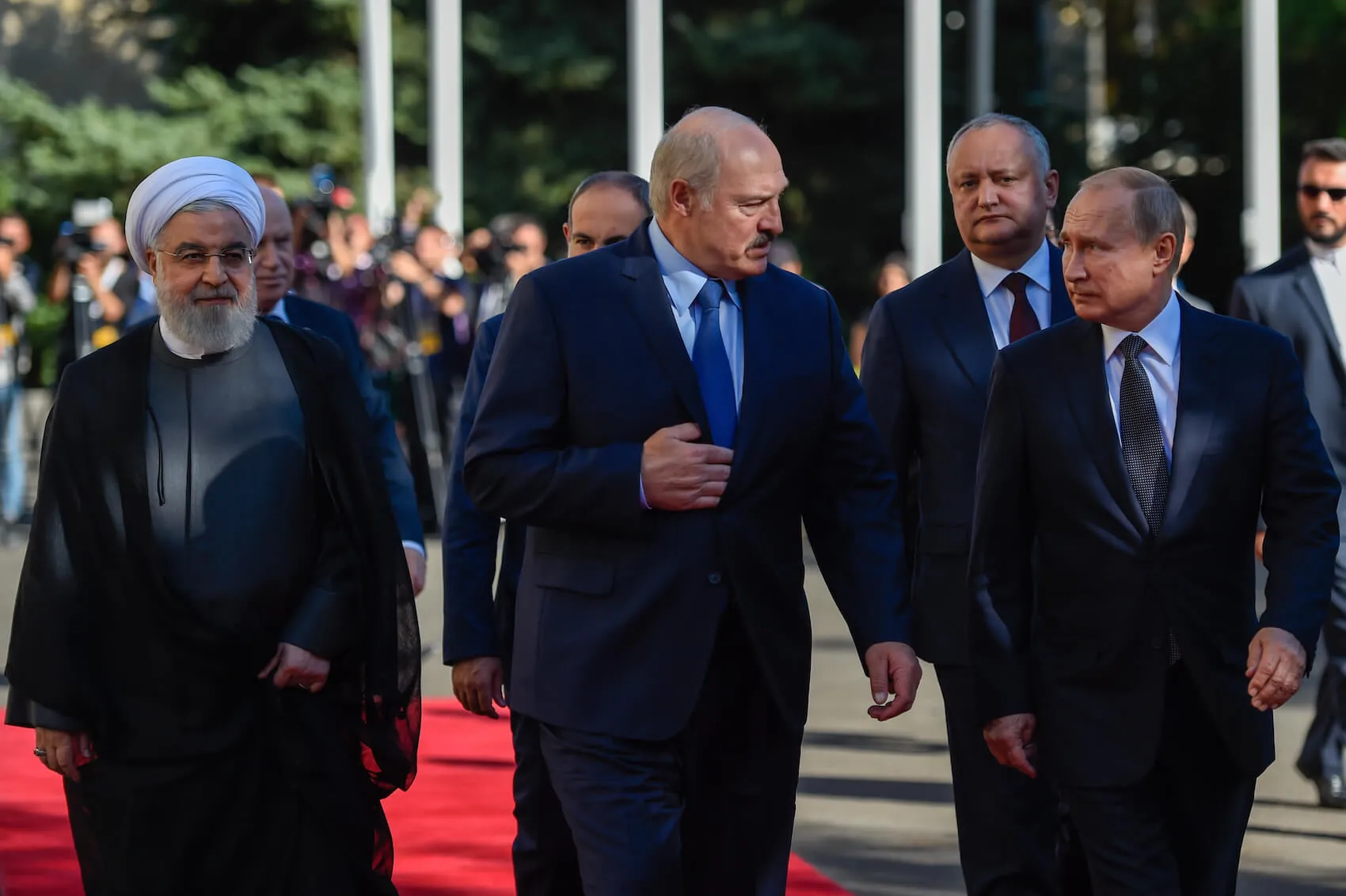
Belarus’ strategic significance for Russia in the context of the Ukraine war is underscored by its long border with Ukraine and its role as a staging ground for Russian military operations. Considering this, what are the potential long-term implications of Belarus’ cooperation with Russia on regional security dynamics and the broader geopolitical landscape in Eastern Europe?
Tatsiana Kulakevich: Belarus appears poised to remain in its current state, with hopes pinned on a favorable outcome for Ukraine. Should Ukraine find itself mired in a frozen conflict or an unfavorable peace agreement, it’s unlikely they will willingly accept it. Any peace accord would likely be imposed rather than voluntary. Thus, the anticipation rests on the United States to provide crucial foreign and financial aid to Ukraine, potentially opening a window for change in Belarus. If Ukraine emerges victorious and triggers shifts within the Russian government, Belarusian opposition forces may find an opportunity for change. However, absent such developments, the outlook for change appears grim. Lukashenko maintains the support of Russia and continues his crackdown on dissent, with reports indicating an escalation in repression, including fatalities in Belarusian prisons. Unfortunately, there seems to be little prospect for improvement at present.
The presence of Russian troops in Transnistria presents a significant obstacle to Moldova’s territorial control, a crucial condition for EU membership. How do you foresee Moldova addressing this issue as part of its EU accession process?
Tatsiana Kulakevich: In this case, Moldova finds itself in a fortuitous position. While Belarus grapples with challenges to its sovereignty and Ukraine fiercely defends its own, Moldova could have easily been the next target had Russian forces advanced into Transnistria. Moldova lacks a strong military presence to resist such aggression.
The aspiration in Moldova is to align with the European Union, a path that includes Transnistria. Despite the presence of Russian troops in Moldova, the hope remains alive. However, understanding the context is crucial. Even before 2014, prior to Russia’s conspicuous intervention in Ukraine, a murky situation existed along the border with Transnistria and Ukraine, characterized by arms smuggling.
Following the events of 2014, Ukraine bolstered its border control, recognizing Russia as an adversary. With Russian soldiers stationed in Transnistria, Ukraine tightened its grip on the border, impeding movement into Transnistria through its territory. Moldova’s capital also intensified its vigilance over these activities.
Russian soldiers traverse into Transnistria, officially Moldovan territory, including through Moldova’s airports, under watchful eyes. Moldova’s stance is clear: why permit further incursions of soldiers into its territory, even if destined for Transnistria, where they’ve been stationed since 1992. Consequently, accessing Transnistria via Ukraine has become increasingly challenging for Russian officers.
Given that the frozen conflict in Transnistria has persisted since the early 1990s, specifically since 1992, the original Russian soldiers involved have long been replaced. The current soldiers are often descendants of those initial officers, hailing not necessarily from Russia but predominantly from Transnistria itself. For them, Transnistria is their homeland, not Russia; hence, their loyalties are complex, tethered not solely to Russia but also to their own land.
This complexity plays into Moldova’s favor to some extent. These soldiers may prioritize the interests of Transnistria over those of Russia. For Transnistria, ties with Russia have been beneficial, offering retirement benefits and subsidized gas. Meanwhile, Moldova has cultivated strong trade relations with the European Union, particularly through its close cultural affinity with Romania. Consequently, Transnistria finds itself in a position where it benefits from both Russia and Moldova yet leans more towards the EU due to the advantages gained through Moldova’s EU agreements. This dynamic underscore Moldova’s desire to integrate Transnistria, despite the challenges involved. Russia’s persistent influence and disturbance in Transnistria complicates this goal, as it continues to support disruptions in the region, thereby hindering Moldova’s aspirations for stability and unity.
Navalny’s Death Sparked Awareness of Political Prisoners in Belarus
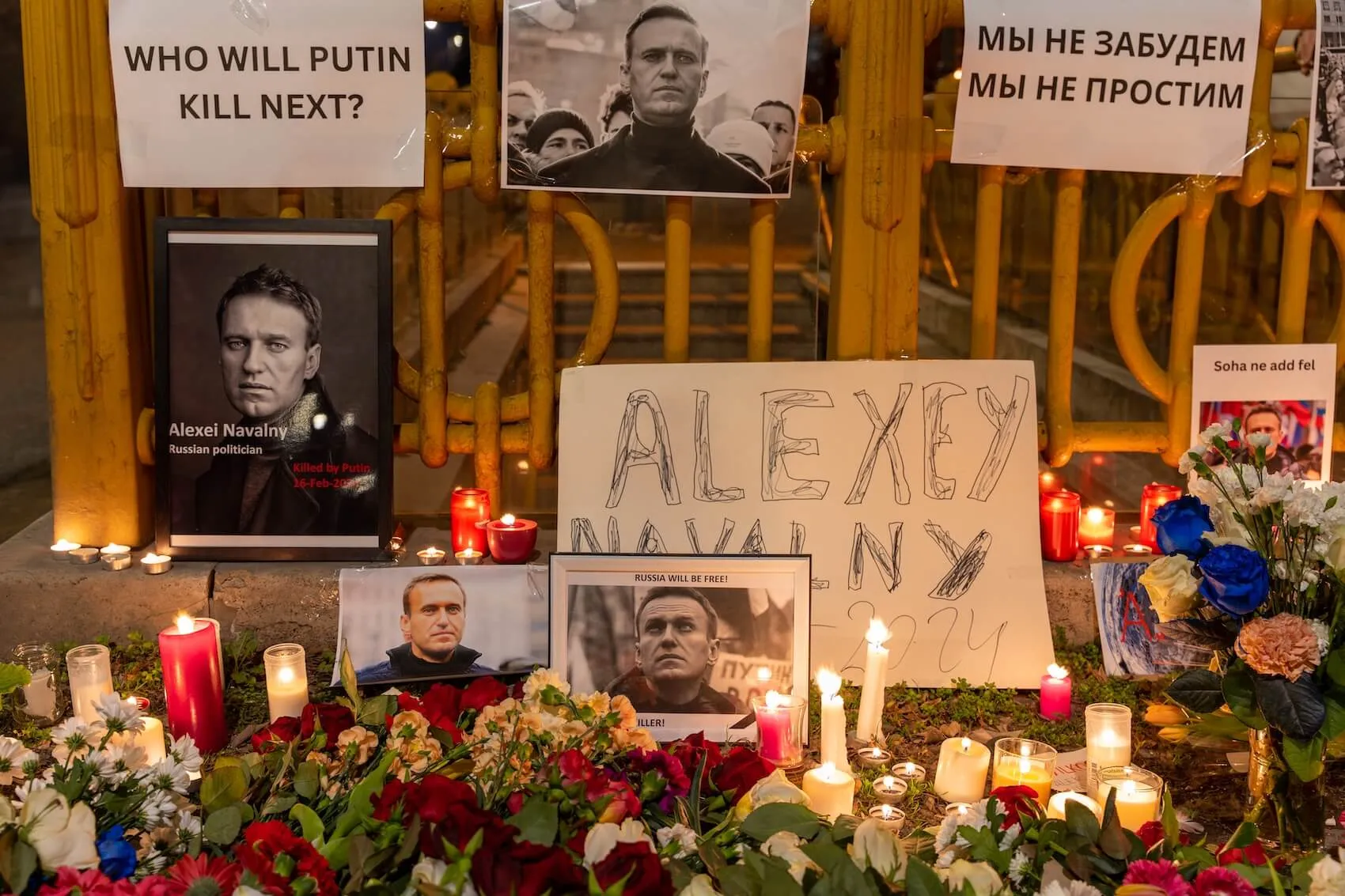
Lastly, today (on Friday) Alexei Navalny’s funeral was held in Moscow. Does the death of Navalny say anything to dissidents in Belarus?
Tatsiana Kulakevich: Yes, indeed, we mustn’t forget. That’s the first thing Belarus compels us to consider, especially after Navalny’s death sparked awareness of the numerous political prisoners in Belarus. Among them are relatives and opposition figures, unheard of for almost a year, or even longer. Their uncertain fate is alarming. We’re not talking about just one person; it’s a matter of concern for many. Navalyn is a big name in Russia. Belarus is no stranger to such cases; there are several prominent names whose fates remain uncertain. It is crucial to emphasize the severity of the situation in Belarus, particularly regarding political prisoners. While overshadowed by the Ukrainian conflict due to its smaller scale and lack of direct bloodshed, Belarus suffers its own form of anguish through the erosion of its citizens’ freedoms.
A few days ago, we received news of yet another political prisoner’s death. His name was somewhat elusive, not quite fully captured, but his passing marks the fifth such tragedy within Belarusian prisons. It’s a grim reality we’re confronting. Reflecting on the demise of Navalny, personally, I found it not entirely surprising. After all, the regime had attempted on his life previously. So, in a sense, they simply finished what they started. It’s a ruthless strategic move, reminiscent of how they dealt with Yevgeny Viktorovich Prigozhin, illustrating that traitors meet their demise. However, Belarus has its own harrowing story, particularly concerning its treatment of political prisoners. The details remain obscured at this point, leaving much to be uncovered.


